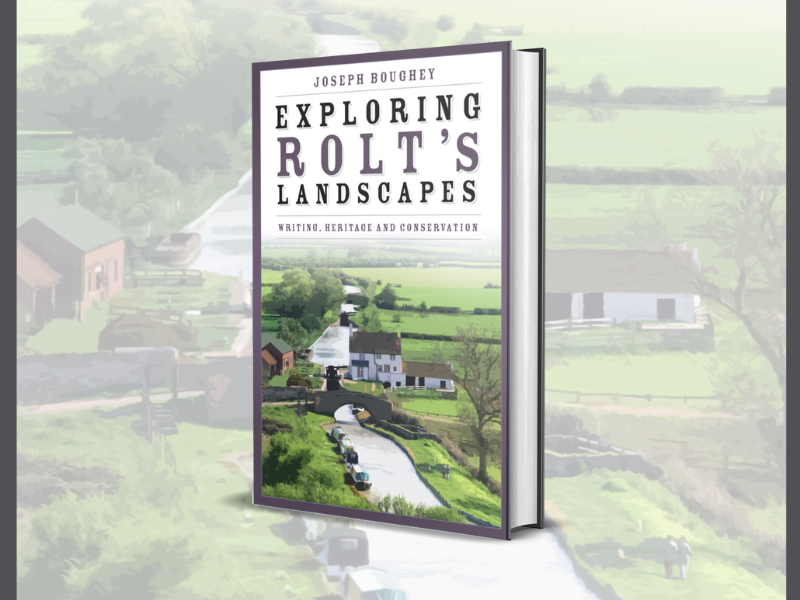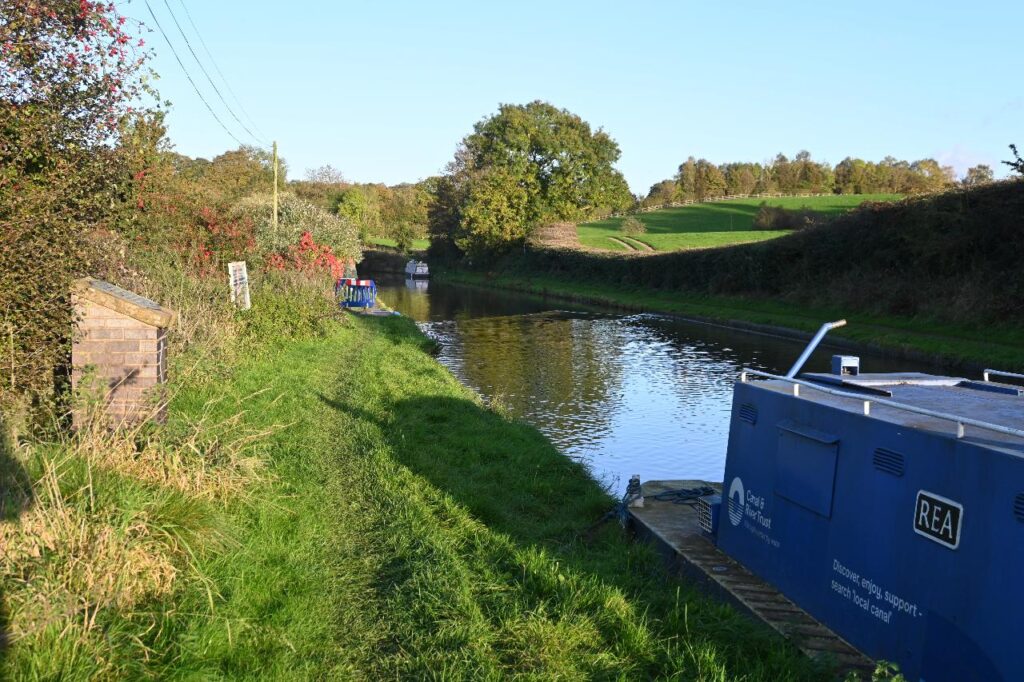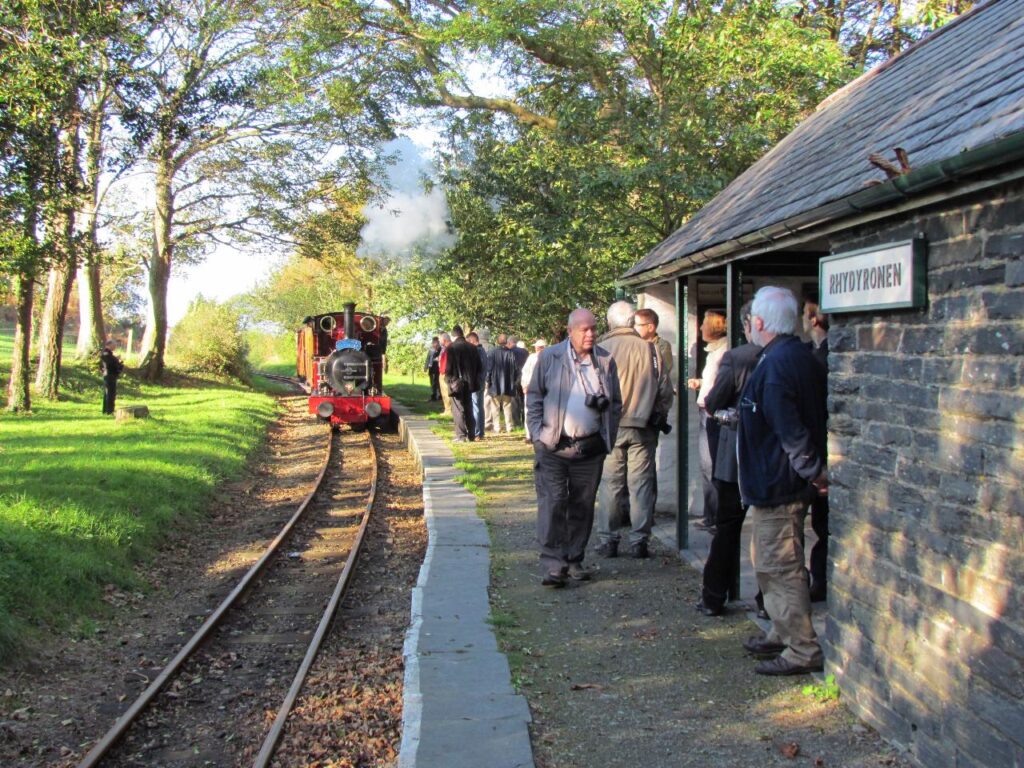
9th July, 2024 in Transport & Industry, Trivia & Gift
I love finding out about what motivates people and how the journey of their lives has unfolded. I am nosey and make no apology for it. Mind you, these are things you certainly require as a journalist; an almost manic need to dig away until you get what you need, which is generall…
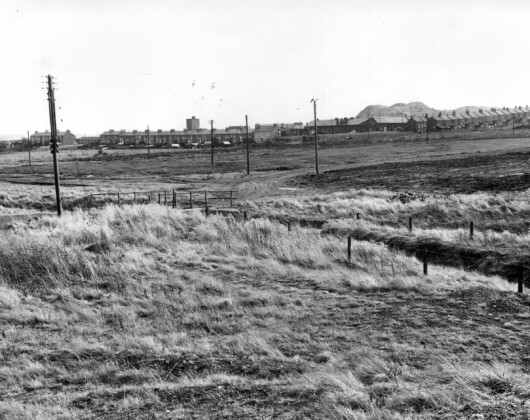
19th January, 2024 in Local & Family History, Transport & Industry, Women in History
This is the last book in the trilogy that started with my great great grandmother, Hannah Hall in the 1820’s as she re-located with her family to a new coal mine opening up in Hetton-le-Hole, County Durham. No-one at that time could have known the importance of that move. By 1822…
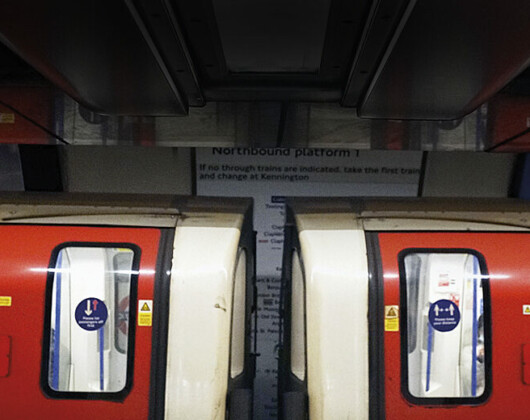
25th January, 2023 in Transport & Industry
Humans are natural puzzle solvers; we make sense of the world around us by seeking out similarities in the labyrinth of patterns and information that we receive. This is why we are drawn to symmetry and why it’s so pleasing to view in photography. Over the past 8 years I’ve been…
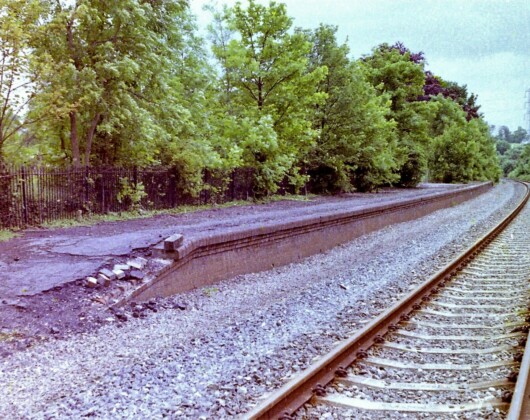
24th November, 2022 in Transport & Industry
It is now 100 years since Great Britain’s railways were drawn together into four companies. They were known as the ‘Big Four’, but why? In 1804 Richard Trevithick pioneered steam traction that was mobile on metal rails. Since the 1700s, wagonways had been used to feed mines and o…
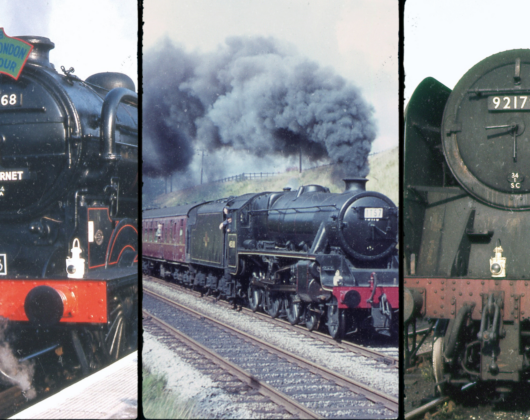
5th October, 2022 in Transport & Industry
In The Last Ten Years, author Brian J. Dickson presents stunning colour photographs from the collections of three enthusiasts of the Seafield Railway Club in north London. Meeting regularly at New Southgate station to record the steam-handled traffic, their focus was initially on…
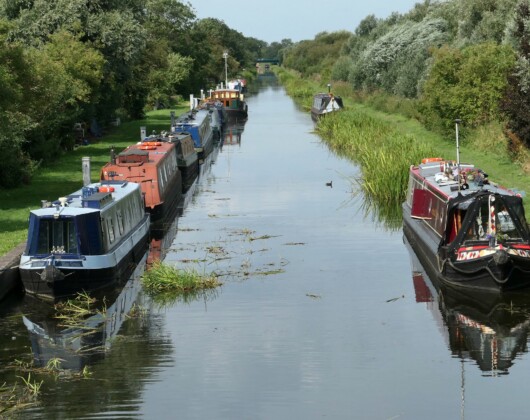
25th March, 2022 in Transport & Industry
The history of canals and river navigations in the British Isles is long, complicated, and continuing, and thus hard to summarise. Joseph Boughey, author of British Canals: The Standard History has selected six historical developments in which there have been confusions and varie…

6th January, 2022 in Transport & Industry, Trivia & Gift
Living and travelling in converted vehicles has become increasingly popular in the UK in recent years and the coronavirus pandemic has only increased the trend further. Life on the road can offer an incomparable sense of freedom and community, with endless opportunity for ne…

29th November, 2021 in Transport & Industry, Trivia & Gift
Ever since the publication of my book Britain’s Toy Car Wars: The War Of Wheels Between Dinky, Corgi & Matchbox, I’ve been pondering on collecting old diecast toy cars and lorries again. It’s proved hard to resist, an impulse hard-wired in over more than 50 years. I…
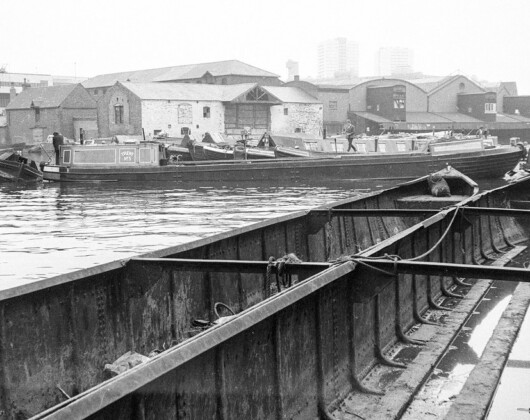
26th November, 2021 in Local & Family History, Transport & Industry
Just how did Birmingham, a city that lies near the geographic centre of England, go global? A trip around the city’s canals may hold the answer, writes author Simon Wilcox. If no-one else knew it at the time, a local poet and innkeeper called John Freeth certainly knew. However m…

29th September, 2021 in Transport & Industry
Back in 2009, Fred Jourden and Hugo Jézégabel couldn’t find any that fitted their specifications – so they decided to make their own. Leaving their 9–5 jobs they set up Blitz Motorcycles in Paris, creating a garage where they would build only the most beautiful and unique motorcy…

5th August, 2021 in Transport & Industry, Trivia & Gift
It’s taken seven years, but now part of my life is complete. With Cars We Loved In The 1990s I’ve finished recording half a century’s worth of the most fondly remembered cars this country has ever known. Exactly 250 of them covered in detail, along with masses of extra contempora…
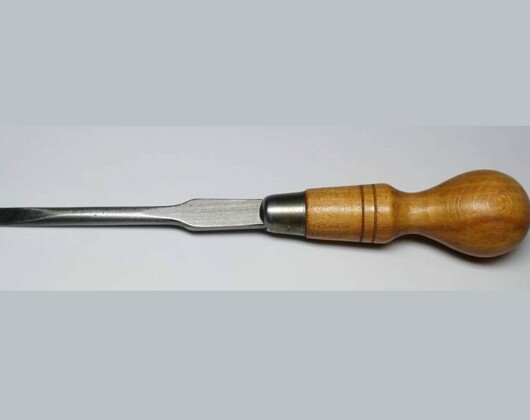
19th May, 2021 in Transport & Industry
When a modern car goes into the garage with an engine misfire or warning light glowing on the dashboard, the technician will plug in a diagnostic computer. This will display one or more fault-codes which identify the problem and advise which component needs to be replaced; often…
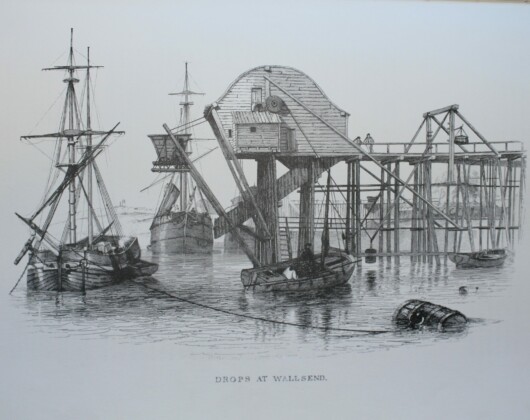
6th May, 2021 in Local & Family History, Transport & Industry
Spanning 150 years of South Shields’ changing fortunes, A Tyneside Heritage is a pioneering work of interwoven local and family history. After the nineteenth-century boom years of coal exporting and shipbuilding for global markets came the First World War and then the mass unempl…
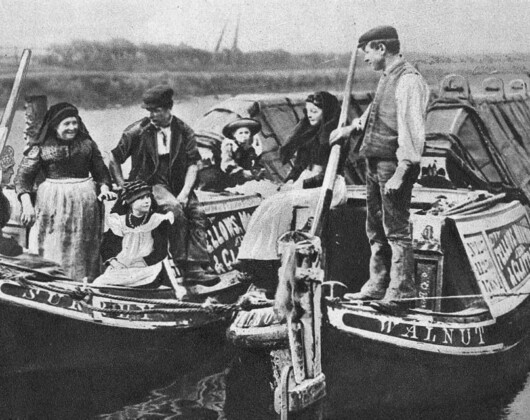
27th April, 2021 in Society & Culture, Transport & Industry
Since being born on a Thames houseboat many moons ago the river has cast a spell across my soul; its soft lappings, its secret islets, its wildly changing moods – reckless and brave one minute, mournful and dissipated the next. My new book, Water Gypsies, is inspired of cour…
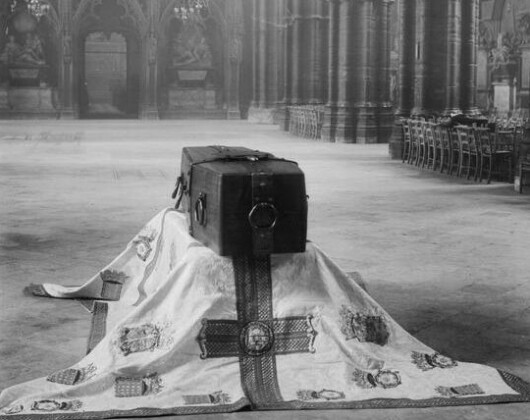
11th November, 2020 in Military, Transport & Industry
11 November 2020 marked the centenary of the burial within Westminster Abbey of the Unknown Warrior. This was a British soldier who was killed in the First World War, someone who was originally buried in or near one of the many battlefields of the Western Front. The idea of comme…
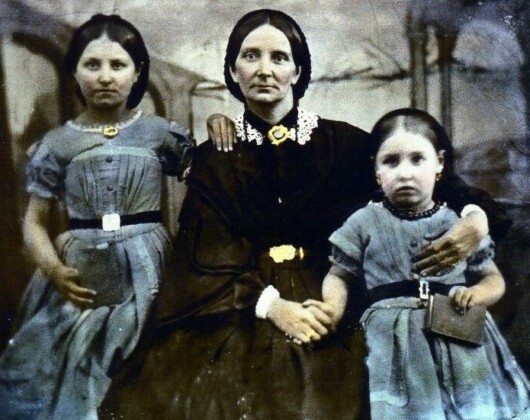
4th November, 2020 in Society & Culture, Transport & Industry, Women in History
Life was difficult for women from the coalfields during the 19th and early 20th centuries. Those girls who were daughters of miners understood some of the difficulties, but it was still their ambition to marry into the industry and take on the responsibility for looking…
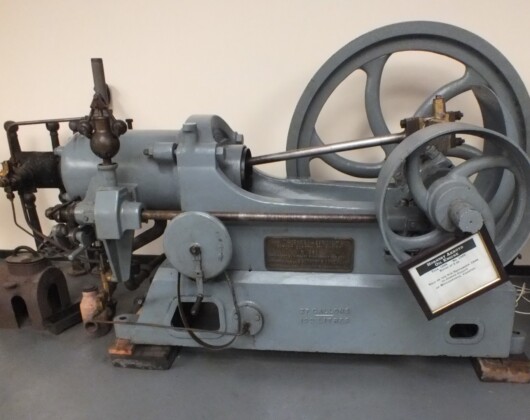
12th November, 2019 in Transport & Industry
The history of technology is full of myths and half-truths about who invented what. One of the real problems is to define exactly what we mean by ‘invented’. For example, do we mean: The first time an idea was suggested? The first time working drawings were produced? The first ti…
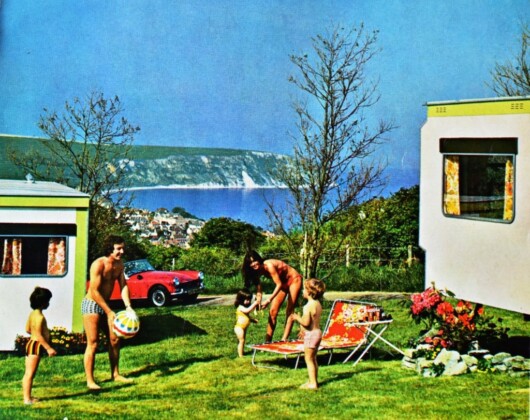
18th July, 2019 in Transport & Industry
From the 1950s onwards, the boom in car ownership soared and the static caravan offered people their very own ‘cottages’ by the sea or in the countryside. Here author Andrew Jenkinson shares 10 facts about Britain’s favourite holiday homes. 1. In the early 1900s, the…
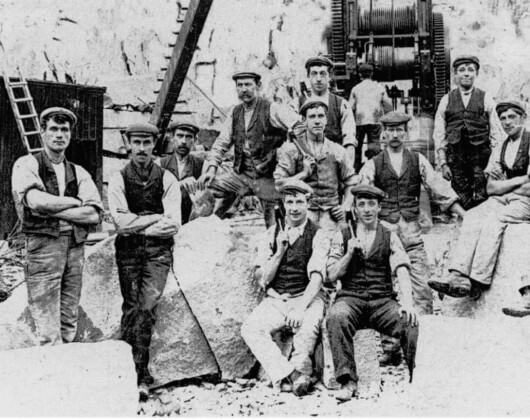
27th March, 2019 in Local & Family History, Transport & Industry
Granite is the hardest of building materials. In the North East of Scotland it has been used for centuries – for stone circles, burial cairns and later for castles. Even large parts of the great cathedral of St. Machar in Old Aberdeen were built from granite. The hard nature of t…

26th February, 2019 in Archaeology, Transport & Industry
Leading civil engineer and Tideway’s Strategic Projects Director Phil Stride reveals an inside look at how the ‘Super Sewer’ was planned, designed, approved, funded and is being built in his new book The Thames Tideway Tunnel: Preventing Another Great Stink, which provides…
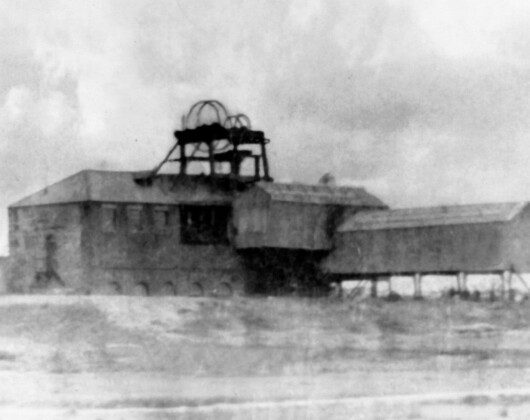
14th January, 2019 in Local & Family History, Transport & Industry, Women in History
Back in 1984, when I began tracing my own family story, there was excitement in learning to use census records to discover where my ancestors were living. There was also satisfaction in locating them in baptisms, marriages and burials in parish records. I soon realised however th…
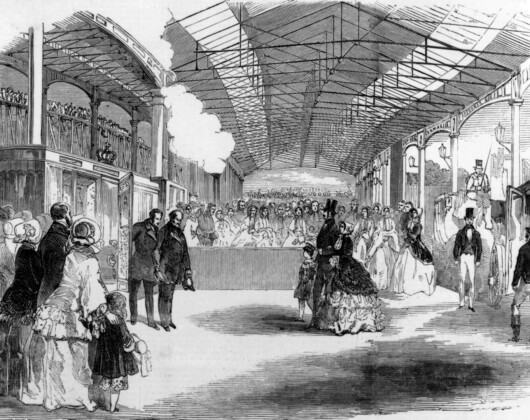
14th September, 2018 in Transport & Industry
London’s Great Exhibition at the Crystal Palace in Hyde Park from 1 May to 15 October 1851 was in need of a temporary passenger station to transport the crowds of visitors. Great Northern Railway quickly provided the Maiden Lane terminus as a temporary passenger station for the d…
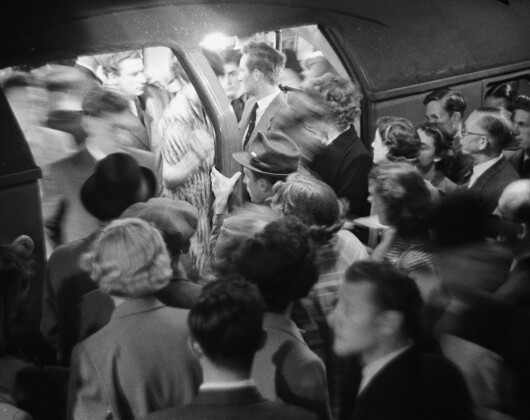
14th September, 2018 in Transport & Industry
The London Underground has always been key to the lives of Londoners; from when its stations and stairwells offered refuge from the barrage of the Blitz to its ability to transport 4.8 million people every day. It was the world’s first underground railway, opening in 1863 as the…
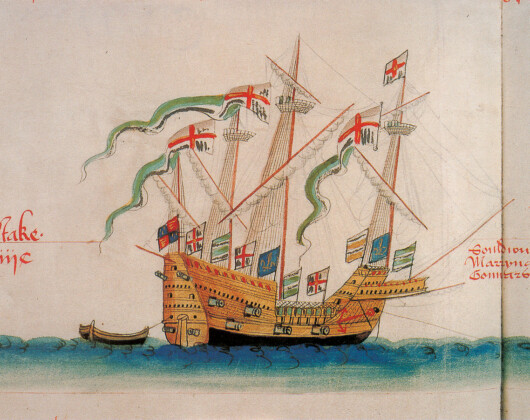
6th September, 2018 in Maritime, Transport & Industry
The history of Portsmouth Dockyard can be traced back over 800 years. During that time it’s been the country’s first dry dock, ordered in 1495 by King Henry VII, and later played a part in the construction of the Dreadnought. But how much do we really know about Britain’s oldest…
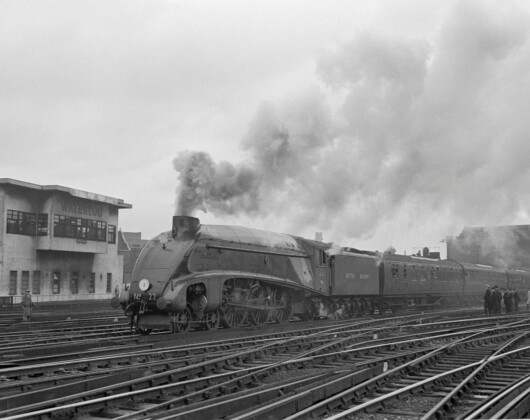
3rd July, 2018 in Transport & Industry
On Sunday 3 July 1938, during a series of high-speed brake trials on the main line between Peterborough and Grantham, the opportunity was taken to make an attempt on the world speed record for railways, using the A4 locomotive No. 4468 Mallard. Although the load was far less…
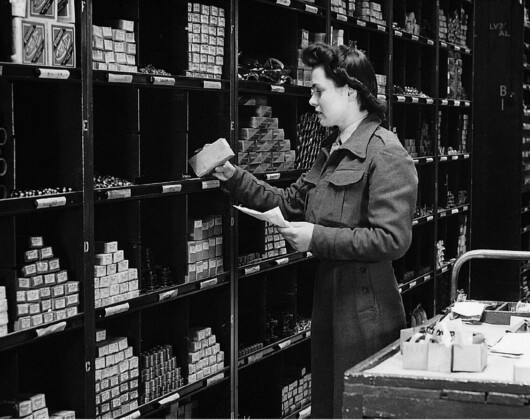
20th June, 2018 in Military, Transport & Industry
Anything from socks to eighteen inch guns was the business of Ordnance Services in World War One; in World War Two the socks were still there, but the emphasis had moved from massive static guns to mobile armour. Bomber Command had taken over the business of carrying tons of expl…

9th April, 2018 in Local & Family History, Transport & Industry
The great bell on which the Westminster clock would strike the hours was to be the largest ever cast in Britain. Sir Charles Barry’s (he had been knighted in 1852) original plan called for an hour bell of 14 tons together with eight quarter bells of various sizes, but Edmund Beck…
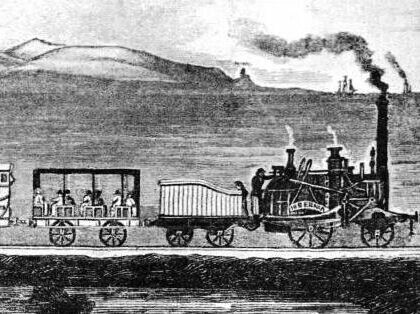
27th March, 2018 in Local & Family History, Transport & Industry
Author Kurt Kullmann takes us through 10 historical facts about the very first Irish railway which ran from Westland Row to Kingstown (now Dún Laoghaire). 1. When the first Irish railway was opened in 1834, it did not go the whole way from Dublin (Westland Row) to Kings…
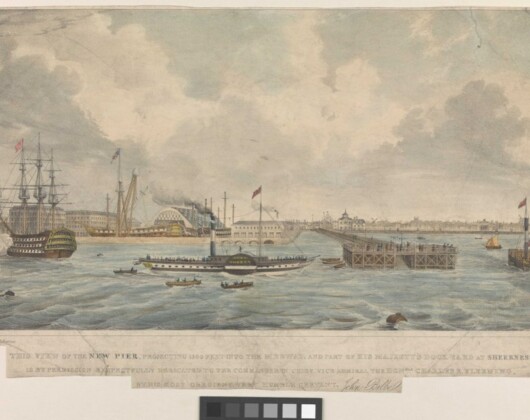
20th February, 2018 in Local & Family History, Maritime, Transport & Industry
The Isle of Sheppey, some nine miles long and half as wide, lies on the southern side of the Thames estuary and is separated from the north Kent coast by a narrow channel of the sea called the Swale. Sheerness in the mid-seventeenth century was a short, beak-shaped point of uninh…

24th January, 2018 in Transport & Industry
Because dangerous driving is so prevalent, travelling by road in the crowded UK is potentially hazardous and frightening. But as retired clinical psychologist Dr Peter McCue points out – people sometimes have puzzling and disturbing experiences of other kinds on our highways…
